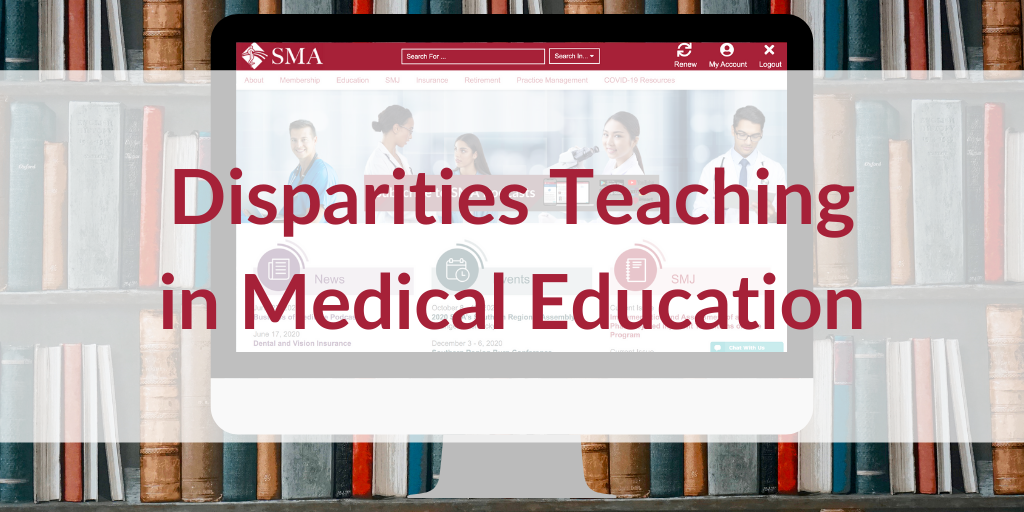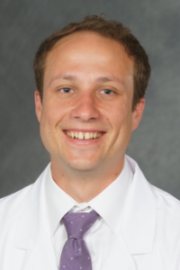
Opinion Piece: Disparities Teaching in Medical Education
Should medical school curriculums educate medical students about the disparities that plague the American healthcare system, and play a large part in driving negative healthcare outcomes, especially in disadvantaged communities? This is a question I have been pondering, especially since I started my curriculum at Alabama College of Osteopathic Medicine (ACOM) in the fall of 2019. Academically, I come from a liberal arts background, and when I started medical school I didn’t truly know what I was getting myself into. I was still a little surprised when I realized there was minimal coverage of social issues within the curriculum, even given the massive impacts they have on patient outcomes. In my second semester I met with the president of the student body, the dean of my college and a faculty member to try to understand why issues like nutrition, healthcare access (or a lack thereof), and racism in medicine were largely left out of the curriculum, but I never felt fully satisfied with the responses I got.
Whether we are talking about access to healthcare or differences in treatment based on some superficial characteristic if clinical outcomes are being meaningfully impacted, shouldn’t part of medical college curriculums be dedicated to making medical students aware? I think it might be easy to write off these issues as marginal, but the reality is patients are delaying their own needed care leading to worse clinical outcomes due to healthcare access and affordability. That is an ethical quandary for physicians. How can I, as a healthcare provider, in one breath encourage my patients not to smoke and to exercise more, and in the next deny needed care because a patient cannot afford their insurance premium? Along the same lines, how can medical curriculums leave residents and doctors wholly unprepared for that reality when they enter practice? Given the well-settled premise that our core obligation as healthcare providers is to do no harm, is there not harm in this? Isn’t harm through inaction still harm?
There is an enormous amount to learn in medical school, but I think that understanding the social context of medicine is just as critical as understanding the principal biological change in COPD is proliferation of goblet cells. I think many people know that medical outcomes are different across class and race in the U.S. but I’m not sure many people know how stark they are. Black American mothers are three to four times as likely to die in childbirth, and their children are twice as likely to die compared with white babies. I believe the reasons go back to issues of healthcare access, comorbid conditions preceding the birth process, as well as racism, mostly the structural kind. These are concrete realities in America, and I cannot imagine a more important group to inform about these realities than medical students, if society wants these outcomes to be improved and ultimately eliminated.
These issues became especially poignant for me, as it did in some form for much of America, during the spring of 2020 when Black Lives Matter was again thrust into the middle of the national dialog in the wake of the killing of George Floyd. My college like many other institutions across America made a statement expressing sadness and support for the members of the student body who have faced discrimination for any reason. That was an important act, especially given the fact that my school is located in Alabama, a state with an outsized position in the history of American Civil Rights. Coming out of that period my school added an Unconscious Bias in Medicine online module, and started a diversity committee. There were other changes to the curriculum that will be added to subsequent years' coursework, but I am left with the feeling that medical schools can and should do more. Medical professionals should be experts on many aspects of what causes our patients to be unwell, both biological and social. Many of my peers who come out of a pure hard science background simply have not had the opportunity to study the social drivers of health, and if they don’t learn in medical school what other opportunity will they have?
With these thoughts in mind, I thought of a project and I’m looking for co-conspirators. I’m interested in connecting with organizations working on these issues (if they exist?) and assembling a task force associated with interested individuals to brainstorm solutions to this education gap in medical schools. My thought was we will meet once per month to discuss developing a curriculum, or other strategies to address these issues, such as gathering best practices from various medical schools and associations. Bottom line, if you think there is an issue here, and you’ve got ideas, enthusiasm or experience let’s get together and brainstorm! My email is rrhalas1@gmail.com.

